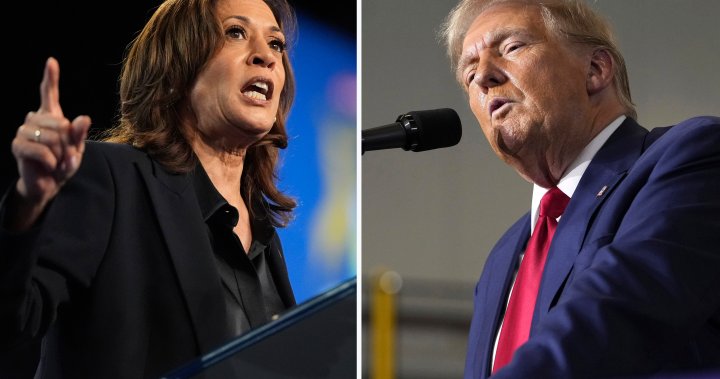Prime Minister Justin Trudeau is facing the challenge of navigating Canada’s relationship with the United States in the midst of a tumultuous American election. The U.S. is Canada’s closest neighbor and largest trading partner, and the outcome of the election will have significant implications for the Canada-U.S.-Mexico agreement, which is set to be reviewed in 2026. Both Vice-President Kamala Harris and former President Donald Trump have advocated for protectionist policies that could potentially cause uncertainty for Canada. Trudeau remains confident in Canada’s ability to handle potential changes in trade policies, acknowledging that the country has dealt with similar challenges in the past.
Trade tensions between Canada and the U.S. have been a focal point in recent years, especially following Trump’s decision to scrap the North American Free Trade Agreement. The renegotiation of the Canada-U.S.-Mexico agreement, known as “the new NAFTA,” was a key test for Canada in maintaining strong trade relations with the U.S. Experts note that Trump’s unpredictable nature and focus on protectionist measures have created challenges for Canada. While current Vice-President Kamala Harris is expected to follow President Joe Biden’s path, which brought some stability to trade relations, there are concerns about continued nationalist and protectionist actions under a Harris administration.
The impact of protectionist policies on Canada-U.S. relations could have far-reaching consequences for both countries. While some individuals, like 27-year-old Jeremy Washington, believe that electing a Republican president could benefit both countries, experts warn that trade and tariff threats will also bring costs for Americans. The shifting dynamics in Canada’s relationship with its closest ally have raised concerns among experts and business groups. The relationship between the two countries has shifted from strategic to transactional, with Canada becoming less critical in comparison to other global issues.
Canada is facing the challenge of maintaining its benefits of integrated trade and travel with the U.S. amidst changing political landscapes. Trudeau’s team has been cautioned to work harder to ensure continued benefits, as both Republicans and Democrats are moving away from the security of historical trade deals. Experts emphasize the need for Canada to engage in one-off lobbying and advocacy efforts to secure favorable treatment. The independent Expert Group on Canada-U.S. Relations has warned that Canada was “sleepwalking” ahead of the 2026 trade pact review, and concerns about the future of the Canadian relationship with the U.S. persist.
As the American election approaches, Canadian officials remain uncertain about the future of trade relations with the U.S. Both Harris and Trump have advocated for protectionist policies that could impact Canada’s economy and trade patterns. It is clear that Canada will need to adapt to the changing political landscape in the U.S. and work to maintain its benefits of integrated trade and travel. The evolving dynamics in the Canada-U.S. relationship underscore the need for continued vigilance and advocacy to safeguard Canada’s interests in the face of potential trade challenges.













